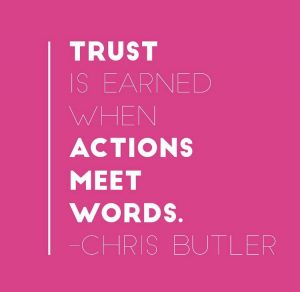After reading the intro and chapter 1 of The Innovator’s Mindset my head just kept spinning. Well, actually it was already spinning it just starting spinning faster. So much so it forced me to really take a look at what needs to change and I actually became quite overwhelmed! Sooooooo, I’m gonna start from scratch!
Starting from scratch involves questioning all stakeholders. Community, district, administration, teachers, parents, and students. What learning opportunities can each of the stakeholders create for one another and even themselves? (Ok soooooo this wasn’t helping my feeling of being overwhelmed! WHERE DO WE START?) Ok, ok, like I said before, we are gonna start from scratch so let’s do just that! I wanted to look at all the things we as educators are asked to do and start to weed some things out to get down to the essentials so we could start there.
About 2 weeks ago, I decided to scrap my PD I had planned for the teachers and decided to have a climate check in. I had them sign on to Padlet and asked them to simply type any and every task they do as teachers in a day, in a week, in a month, in a school year… I asked that the tasks be kept as judgment free as possible. So instead of “Hang my lesson plans on the door even though no one looks at them,” we would type, “Have lesson plans in folder on door.” I reminded them that this activity could get negative but that was not the point and we wanted to keep things as positive as we could so if needed, I could take this data and have a constructive conversation with administration. It took a minute or two but then the juices were flowing! I did this with all three grade levels (6th-8th) in their grade level teams. I rarely get thank you emails for PD and that day I got 4 emails thanking me for allowing them to get things out and recognizing their struggle. Yep, I needed to keep going and do something with these lists…
In Chapter 1, Couros references a TEDx talk by Carl Bass, “The New Rules of Innovation.” Bass says innovation is about, “taking risks and breaking the rules.” Two things I was about to do… At that moment I had to ask myself, “What is best for these learners?” Do I continue on and do a close reading strategy PD or do I BREAK THE RULES and actually talk, in an open space constructively, about the OVERWHELMING tasks that come along with teaching. So I took a risk and started planning next week’s PD. With the help of a fellow coach I have SO much respect for and a former boss that happens to be a certified Life Coach and therapist, I feel innovation coming on… (Is that even a thing?) I was stoked! “Stressed brains can’t teach and stressed brains can’t learn!” Here goes nothing to help alleviate some of the stress.
I started the PD with having teacher journal about what made want to be a teacher and what the best part of teaching was. I then went into a lesson on external and internal barriers and looking at exactly what we have control over. We do not have control over WHAT we are asked to do but we do have control over HOW we receive it and react to it. Keeping in their minds what they journaled and knowing what they have control over, I took out the lists they as a grade level typed the week before. I reminded them that looking at the list of 80+ tasks might get them feeling some kind of way but again to be rooted in what made them want to be a teacher. At the moment, nothing was coming off the lists. I asked them to look at the list with know what is best for kids; label each task E for essential for learning, I for Important for learning, G for good for learning. I had them do this individually for their own personal reflection. As teachers were finishing I had them highlight their E’s on a master list and their I’s on another master list. These were for me to keep. It was awesome to see that so many of them agreed on the essential tasks! That was it. We didn’t solve the world’s problems but we took another baby step in self-awareness. Again I was thanked throughout the day via conversations, emails, and text messages. The best comment was probably from a teacher that is getting ready to retire next year. She said, “I’ve been around for a long time and at least someone is listening to us. This is the first time I feel like someone is listening to us.” Feeling like I have a HUGE responsibility to follow through on this, I called my principal and said I needed at least 30mins at our next leadership meeting. He said ok and I felt empowered.
I took the lists, without saying which went along with what grade level, and presented to our leadership team. The lists of 72-94 tasks took them aback. We had an amazing discussion around things like leadership vs. management, compliance vs. engagement, the reasons behind asking the teachers to do certain things and did it forward our mission. Again, nothing was solved but there was a sense of empathy and it was a bit of a gut check.
Couros says, “Any time teachers think differently about who they teach and how they teach, they can create better learning opportunities.” I would like to challenge leadership to read that quote as, “Any time leadership thinks differently about who they lead and how they lead, they can create better learning opportunities.”
I’m done with status quo… I’m starting from scratch and I’m gonna break all the rules! #innovatorsmindset

